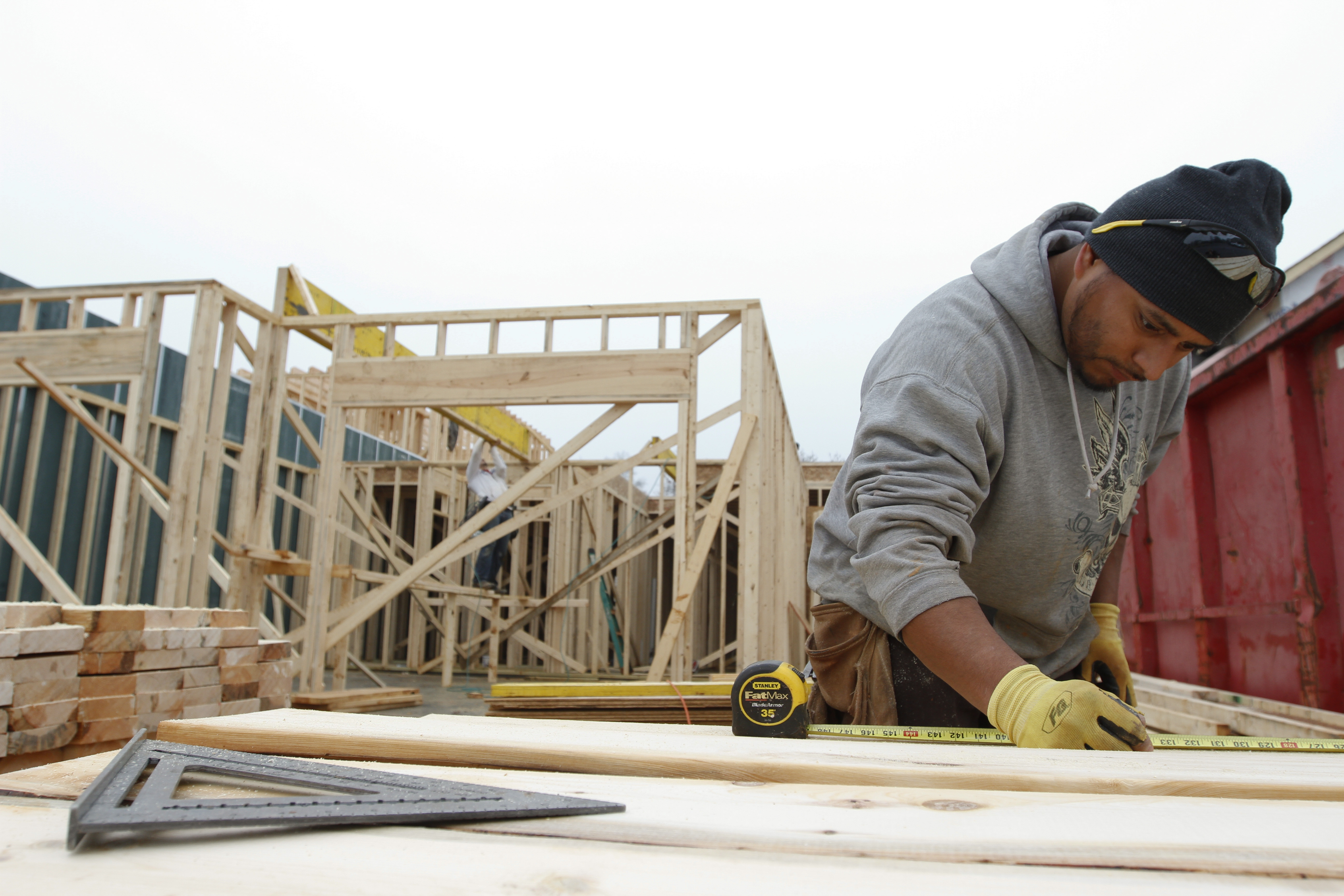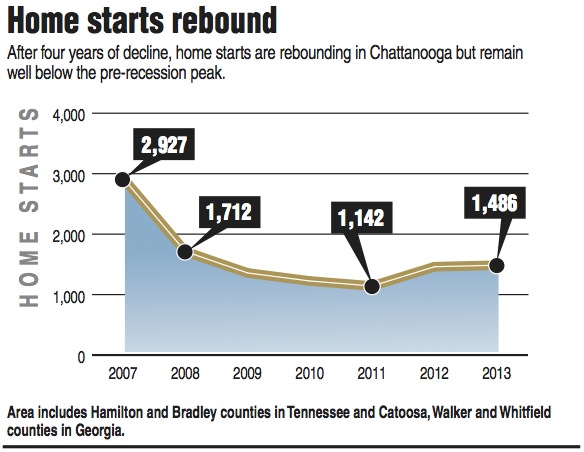RESIDENTIAL BUILDING PERMIT ACTIVITY, 2013• Catoosa -- 130 new home starts, up 21.5 percent• Walker -- 79 new home starts, up 49.1 percent• Whitfield -- 36 new home starts, up 28.6 percent• Bradley -- 291 new home starts, up 11.9 percent• Hamilton -- 950 new home starts, down 6.2 percentCOMMERCIAL BUILDING PERMIT ACTIVITY, 2013• Catoosa -- 37 permits, $5 million• Walker -- 32 permits, $9.2 million• Whitfield -- 76 permits, $25.2 million• Bradley -- 101 permits, $43 million• Hamilton -- 523 permits, $182.3 millionSource: TheMarketEdge.com
Chattanooga's recovering housing economy suffered a relapse in 2013, with growth leveling off to an anemic 1.7 percent rise in new home starts on the heels of an impressive 28 percent jump in new home construction for 2012.
It was Hamilton County that pumped the brakes in new home construction with a 6.2 percent slowdown in home starts, leading to a screeching stop for the entire region. Hamilton County typically sees more housing activity than Catoosa, Walker, Whitfield and Bradley Counties combined, and its losses this year were balanced out by gains in the outer suburbs.
"That's not always bad news," said Dale Akins, president of research firm The Market Edge, which collects the figures. "It's a return to normal."
That depends on how you define normal.
Chattanooga area builders started work on 4,484 new homes in 2005, before the market crashed and the number of new home starts tumbled to just one-quarter of what they once were -- an uncomfortable 1,142 in 2010. Even as economists today tout the strength of the economic recovery in some sectors, new home starts in the Chattanooga area inched upward only slightly in 2013 to just 1,486.
Though home starts are only a predictor of future trends and not a guarantee of a market's rise or fall, updated sales data from the Greater Chattanooga Association of Realtors supports Akins' findings of a slowdown.
Combined new and pre-owned home sales dropped in January to 429 homes sold, down 7.9 percent from the same month of 2012. In February, the number of closed sales fell to 417 units sold, down 15.1 percent from February 2012. That's something that Vicki Trapp, president of GCAR, called "normalization."
"The economy has more or less shuffled along, despite some climate-induced surprises to job growth and new construction," she said.
To figure out what's normal and what's inflated, economists look at the number of homes a city like Chattanooga can actually support. For those who really want to know where the housing market is going, look at the number of people with jobs and measure the change in that number, he said.
"In 2013, we had a loss," Akins said. "That's happening everywhere."
Preliminary employment figures for January offer hope for a better 2014. The number of non farm jobs in the Chattanooga metro area grew to 235,400 in January from 234,300 in January of the previous year, according to the Bureau of Labor Statistics. For market watchers, the 1,100 new jobs could give a hint at potential first-quarter growth in new home starts.
Randy Durham, a real estate agent for Keller Williams, said what the market is really doing is stabilizing after a harsh winter, a development that could begin to draw more future homeowners out of that multi-family housing that made so many inroads during the recession.
"I think the dream of home ownership will always remain strong, and as long as people have the option, it's always going to be the top pick," he said.
The good news is that since homebuilders here aren't erecting more homes than they can sell, the city may be in for a less rude awakening than some of its neighbors, many of which saw big, unsupportable gains in new home construction.
New home starts in Knoxville grew by 31 percent in 2013. Charlotte, N.C. grew the number of new homes started by 25.3 percent. The number of new home starts in Columbia, S.C. increased by 16.5 percent.
"Building permits are back up in most places," Akins said. "But we don't have the job growth to support it."
Contact staff writer Ellis Smith at 423-757-6315 or esmith@timesfreepress.com with tips and documents.


